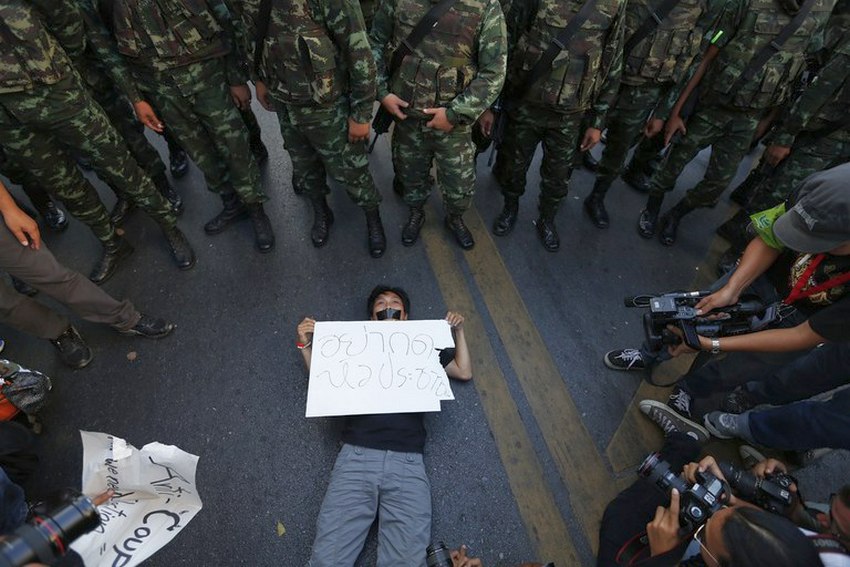
The government is planning to outlaw military coups once and for all even though previous attempts have fallen through administrative cracks. The proposals this time would establish a Cabinet-appointed committee to select generals and would empower subordinate military officers to refuse to obey their commander's instruction to carry out a putsch. The prime minister would have the power to suspend from duty any military figures suspected of planning to overthrow the elected government. The overall intention would be to deprive coup makers of sovereignty or "ratthathipat".
Surprisingly, the proposals do not seem specifically to mention martial law. In May 2014 the Thai military imposed martial law amid a political crisis "to preserve law and order" but said the surprise move was not a coup. Soldiers took over TV and radio stations and blocked off roads in Bangkok. Then army chief Prayut Chan-o-cha called on rival parties to talk to each other and resolve the political crisis. When they failed to do so, general Prayut declared he was assuming the "supreme power".
New legislation will be opposed in parliament by minority parties which supported the former military-backed government. They are likely to say that street chaos and demonstration could happen again, or that radical politicians might try to compromise Thailand's revered monarchy. In any case, a successful military coup would obviously involve suspending the constitution and replacing it by a decree legitimizing the putsch. Historians have described a vicious cycle of Thai politics in which oftentimes unstable and democratically elected civilian governments alternate with military rule installed on the pretext of restoring order.
The best that can be said for Thai coups – 12 successful ones since 1932 – is that they put temporary sticking plaster over a wound ("ya saman pracham bahn"), and there is no evidence that they achieve higher economic growth than civilian administrations. The last coup-inspired government from 2014 saw a shrinking economy overall, although Thailand was the first country outside China to be hit by covid-19 which decimated international tourist revenue for several years.
As regards the future, anti-coup legislation in Thailand would obviously be useful if an attempted putsch failed as instanced by recent events in South Korea. Here, imposition of martial law was an immediate fiasco with impeachment now looking likely for the perpetrators. Thailand is safe from a coup as long as thousands of discontented people don't camp on the streets of Bangkok for weeks on end. But if politics sinks again to that level of ongoing conflict, best to sound the warning bell. As coup historian Timothy Snyder said, "Never underestimate the ability of the army to convince the public there isn't any alternative."



Inga kommentarer:
Skicka en kommentar